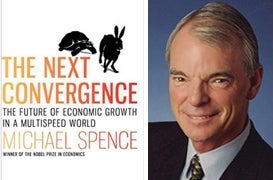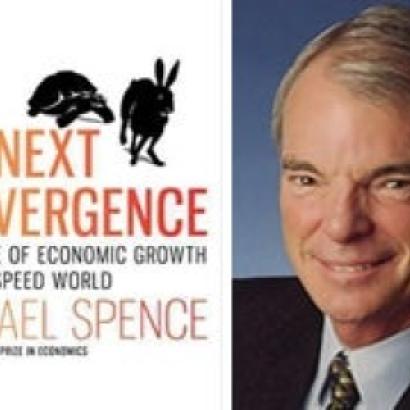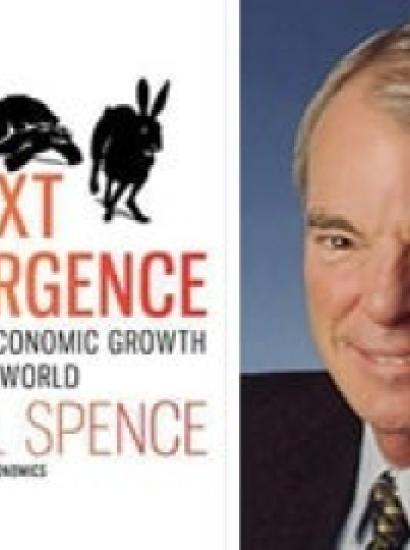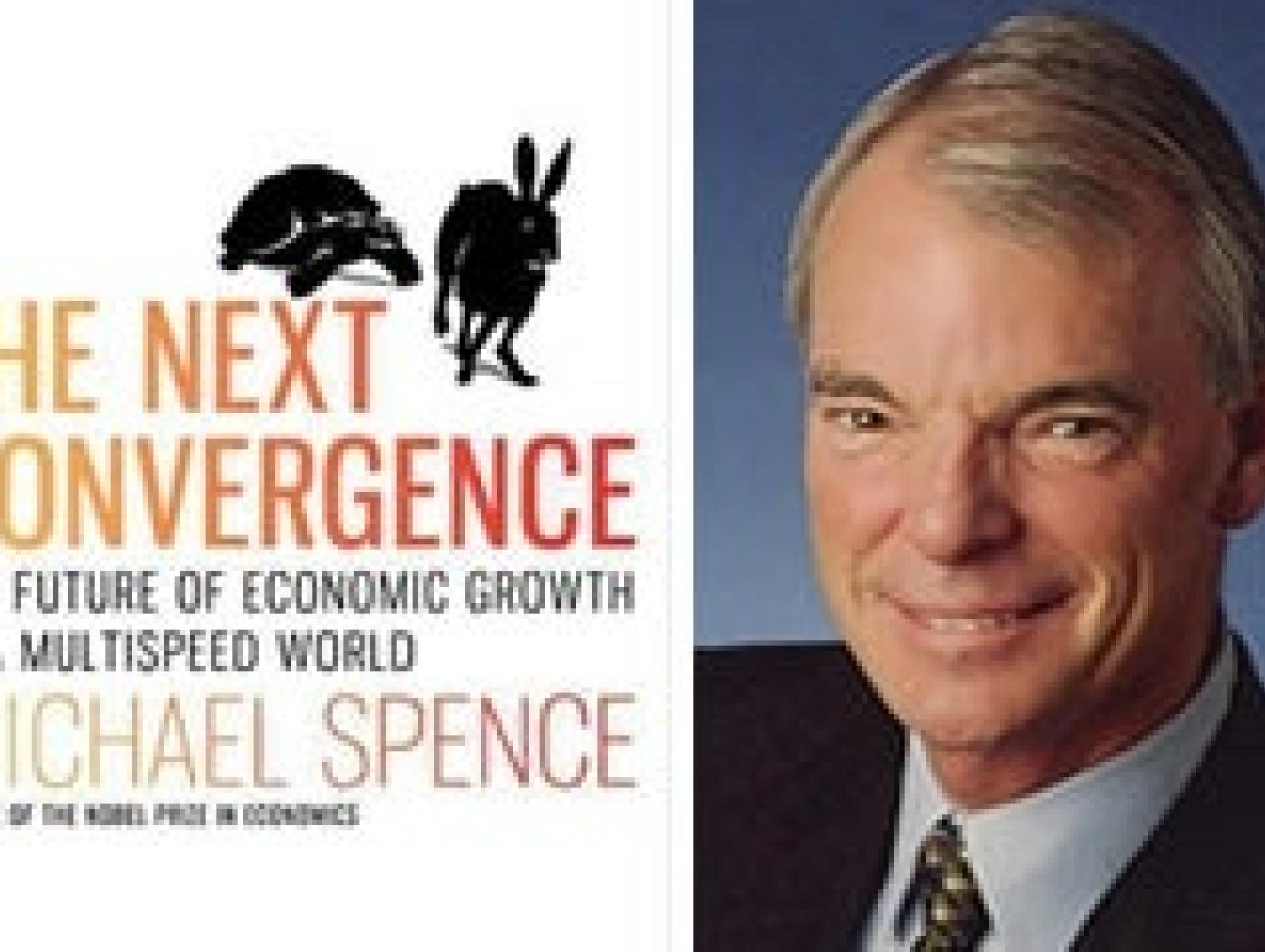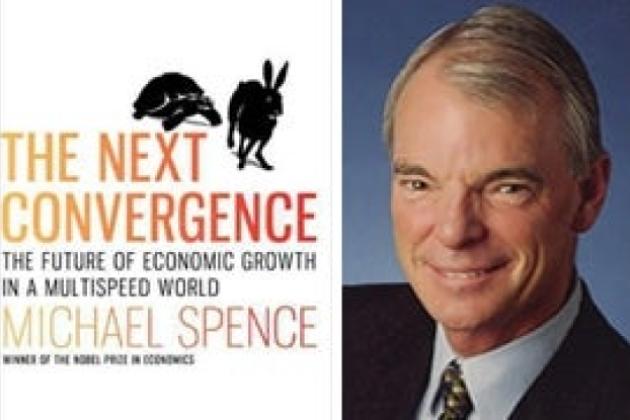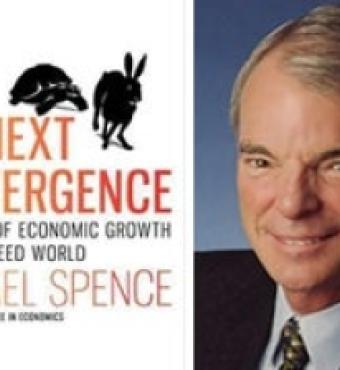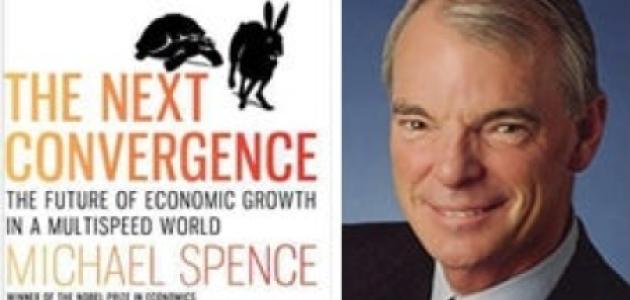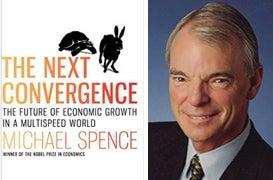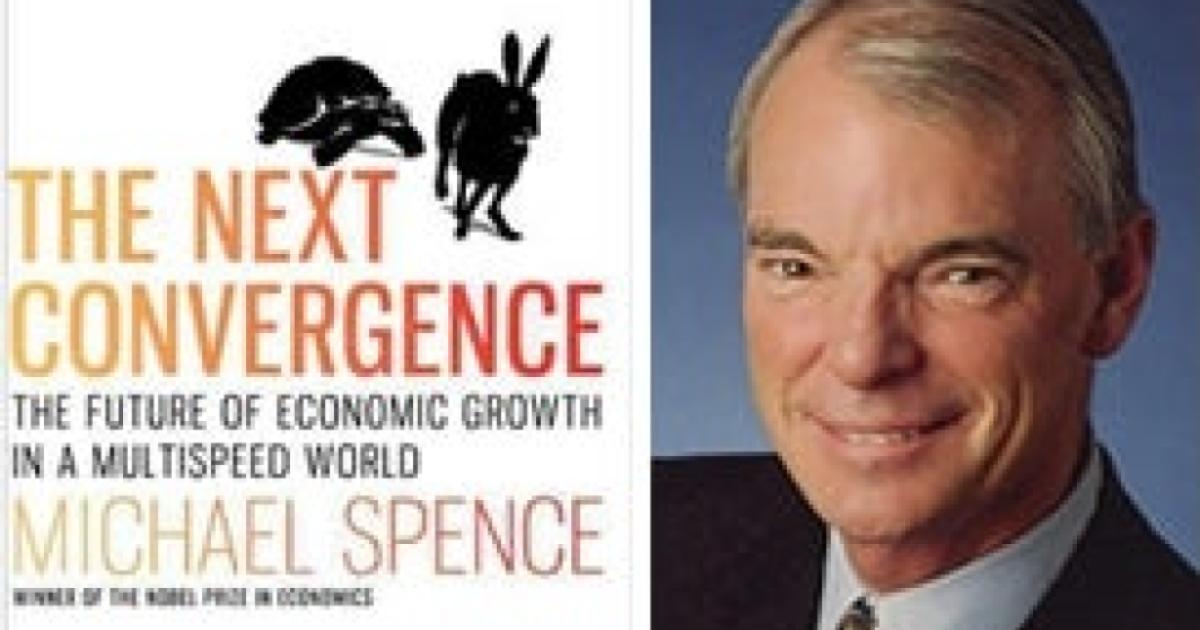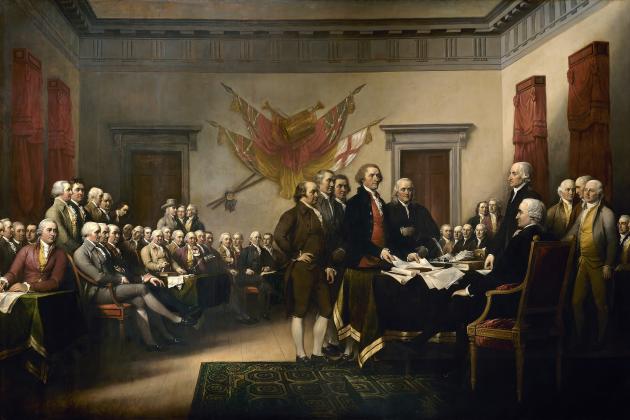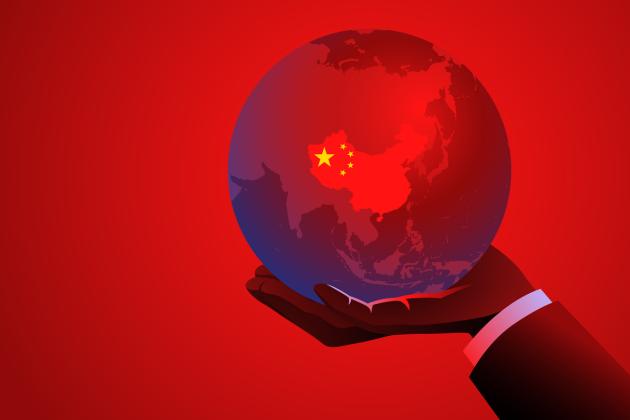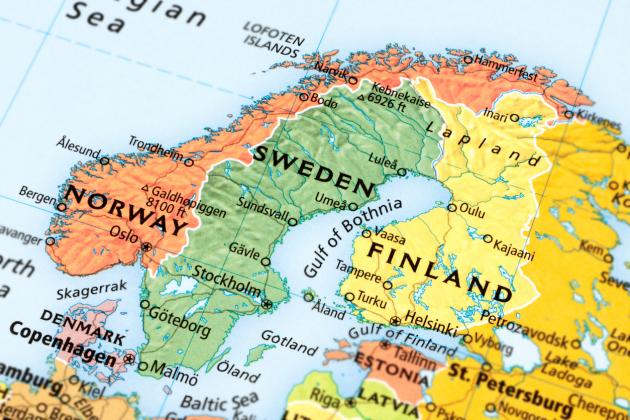Having won the Nobel Prize in Economic Sciences, serving as dean of Stanford’s Graduate School of Business and as dean of the Faculty of Arts and Science at Harvard, studying as a Rhodes scholar at Oxford, and now teaching at NYU’s Stern School of Business, one would think that Hoover Institution senior fellow Michael Spence would sit back a bit. On the contrary, Spence is closely examining the transition of the Chinese economy (the world’s second largest) and its worldwide implications.
In a presentation at Hoover on March 1 entitled “China and the Middle-Income Transition,” Spence noted that China sailed through the economic crisis of 2008–9 and continues to grow at an annual rate of 8 percent. The Chinese economy is now half the size that of the United States.
Can the developing countries (notably, China, India, and Brazil) continue to grow in the face of the economic decline in the advanced economies? That, says Spence, is the question that faces China as it approaches the transition from developing to advanced international economic status.
The few countries that have made that leap are Japan, South Korea, Taiwan, Hong Kong, and Singapore. The jump in per capita income from $5,000 to $10,000 (signifying the transition advanced status) means substantial changes in the structure of the economy, from exporting low-cost, labor-intensive goods to a very different export portfolio.
The countries noted above are not nearly as large as China and did not face its international financial and economic headwinds. Several of them, however, made a parallel political transition, from a dominant single party to a multiparty democracy as their economies grew and the middle class expanded.
China’s growth is partially based on a government-funded investment model that may have to change. Spence feels that greater domestic consumption and expanded and improved infrastructure will be necessary if China is to enter the ranks of the world’s advanced economies.
Spence’s current research is an extension of his 2011 book The Next Convergence: The Future of Economic Growth in a Multispeed World.






